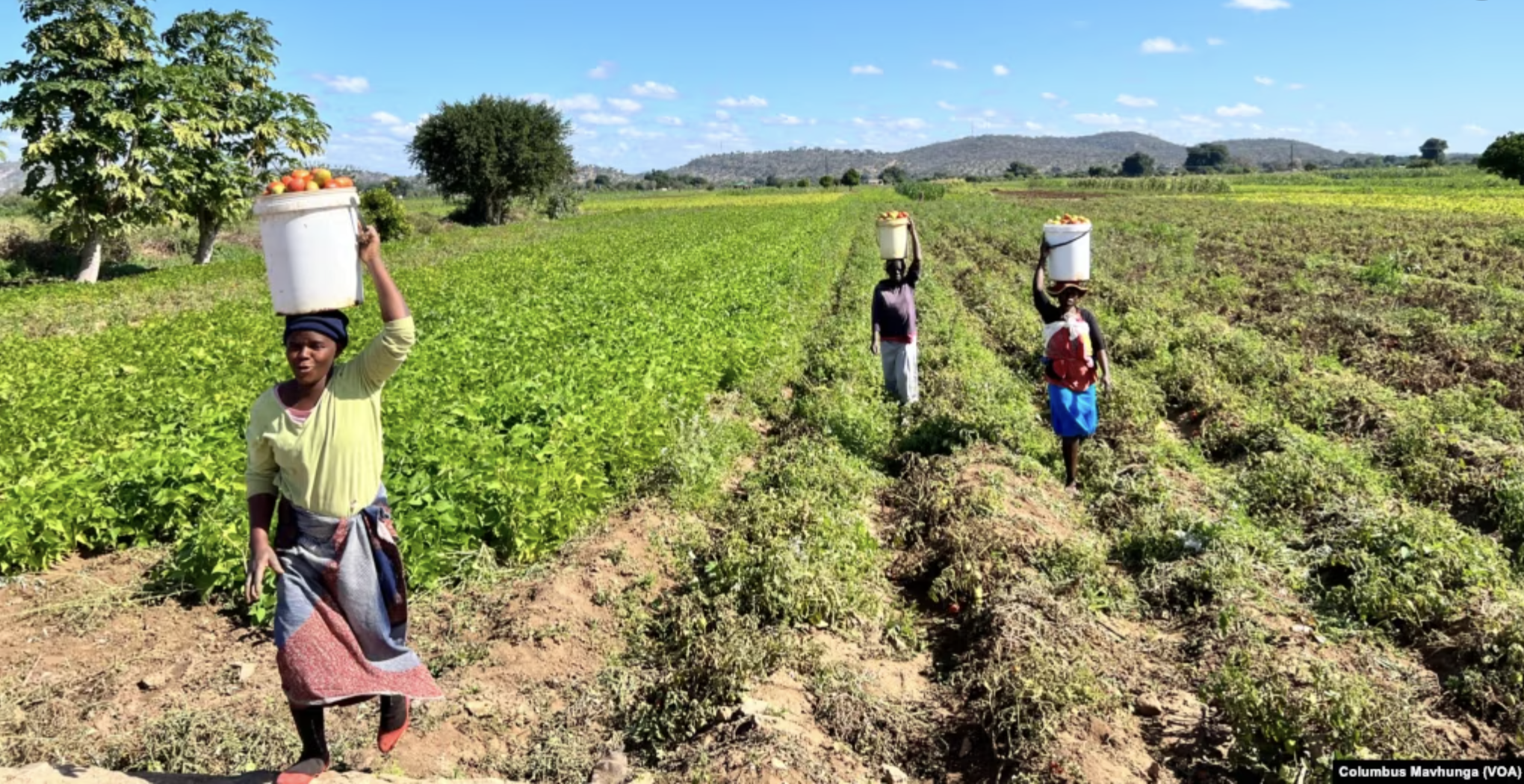From turmoil to tenacity: Zimbabwe’s farmers rebuild amid delayed land grab compensation

On a thriving paprika farm in the heart of Zimbabwe, two neighbours — Daniel Burger and Miriam Mupambawashe — are rewriting a difficult chapter of the country’s agricultural history.
In the wake of Zimbabwe’s controversial land reform programme, which saw thousands of white-owned farms seized in the early 2000s, farmers like Burger and Mupambawashe are working together to cultivate a future rooted in cooperation and resilience.
Burger, 36, a fourth-generation white Zimbabwean farmer, and Mupambawashe, 59, who was allocated land through the reform, share a deep commitment to reviving Zimbabwe’s once-thriving agricultural sector.
“There was a bit of a tough period through the 2000s and, unfortunately, I think it sort of refuelled racial tensions to an extent,” Burger told AFP.
“But being so passionate about farming was the motivator for me to move forward.”
Mupambawashe relocated from Bulawayo in 2001, inheriting land that was then untouched bush.
“When we first came here in 2001, it was a forest and there was nothing built,” she recalled.
Despite initial friction, some white farmers offered unexpected support.
“They never let us down and said, ‘You grabbed the farm, let’s see if you can do it’.
But instead they brought their own tractors and equipment to come and help, which we felt was a nice gesture.”
While Mupambawashe’s once-subsistence plot now flourishes, not all land reform stories share such success. Many farms were left idle, some handed to individuals lacking agricultural knowledge or interest.
Food shortages and international aid soon followed.
Meanwhile, the long-delayed issue of compensation for seized farms continues to divide opinion.
Burger, now vice-president of the Commercial Farmers Union, reflects: “For a long time we became wound up in compensation.
But it wasn’t our purpose. Our purpose was driving agriculture and current agricultural affairs forward.”
In 2020, Zimbabwe pledged US$3.5 billion in compensation — not for the land itself, which it claims was taken during colonial occupation, but for infrastructure.
Yet, funding has been elusive. In 2023, the government adjusted its offer to one percent in cash and the rest in U.S. dollar-denominated treasury bonds.
“The general feeling amongst the farmers is firstly frustration that after 20-odd years we still have not received anything,” said Deon Theron, of the Compensation Steering Committee.
Others, including the Property and Farm Compensation Association, have accepted the bonds, viewing further negotiations as futile.
However, a new policy granting full ownership rights to land reform beneficiaries offers a measure of stability.
“It makes us feel settled,” said Mupambawashe.
“No one could come and tell us to move off the land or take it away from us.”
Burger is optimistic: “We used to be the breadbasket of Africa and we lost it somewhat.
But I just look at where we are now… It is just going to catapult us forward as a nation and an economy.”
Source: yen
About The Author
dailymailafric
I am an avid African news observer, and an active member of Daily Mail Africa.
I’m Passionate about staying informed on diverse topics across the continent,
I actively contribute to publishing on political, economic and cultural developments in Africa.



